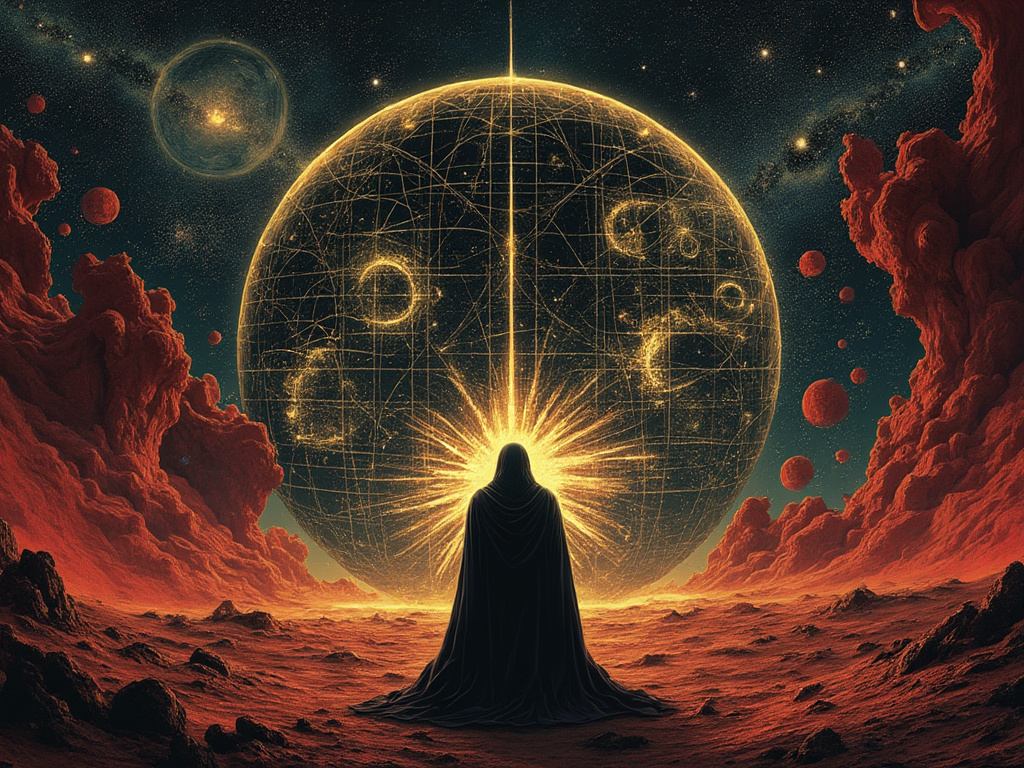The concept of “pagan” originates from the Old Testament. In Russian, “nations” were referred to as “languages” (языки). Among ancient Jews, the term “am” (עם) was used to describe themselves, while “goy” (גוי) referred to other nations. The Jews were considered one people (the chosen), while there were many “languages” of other nations. The Jews worshiped one God and believed that all other nations (“languages”) worshiped many gods. Thus, the term “language” (goy) became associated with polytheists and idolaters (in Greek, the word for this was specifically ειδολολάτρης). The corresponding Latin term was gentilis, from gēns, meaning “people,” “clans,” or “nations.”
This meaning was adopted by Christians, with the contrast now being not between Jews and everyone else but between Christian nations, which represented the Church of Christ and the unified “holy nation” (ὁ ἱερὸς λαὸς), and the nations and cultures worshiping many gods. These latter were referred to as “pagans.” Essentially, the Christian nations themselves were once “pagans” before they accepted Christ. Those nations that did not accept Christ and continued to worship many gods (ειδολολάτρης) were still called pagans.
The ancient world almost never knew atheism in the modern sense and could hardly imagine how it was possible not to worship anything at all. Only a few eccentric philosophers, such as Democritus and Epicurus in Greece or the Charvaka-Lokayata in India (as well as other Nastika movements like early Hinayana Buddhism), proposed the peculiar and strange hypothesis (for the common mind) that “God does not exist.” This was an ultra-marginal position. Interestingly, in the Talmud, the term “Epicureans” is used for both “atheists” and “pagans.”
But there is a nuance here. Undoubtedly, non-Jewish, non-Christian (and non-Islamic) cultures had their own understanding and interpretation of their traditions. Many of them were convinced that they also worshiped the One God, and other sacred figures were simply personified aspects of Him. Plato, and especially the Neoplatonists, placed the One above all else. The Cappadocian Fathers cited evidence of the “Hypsistarians” (from θεὸς ὕψιστος — Most High God), non-Jews who worshiped the One God with emphasis. Sometimes, religious historians introduce the intermediate concept of “henotheism” (literally “one-god worship”) — between monotheism (worship of one exclusive God) and polytheism (worship of many gods). Indian Advaita Vedanta highlights precisely this kind of non-dualistic approach. Even the explicit dualism of Zoroastrianism still ultimately leads to the triumph of one God — the God of Light, although such “monotheism” here is dynamic and eschatological. Two principles operate in history, and in the later eras, the dark one prevails. But only temporarily, until the absolute triumph of Light.
Pre-Christian and non-Christian traditions, with the exception of the Abrahamic religions recognized as monotheistic (Islam and Judaism), are usually called “pagan” and “polytheistic.” This is a certain approximation and an external view of them. Whether monotheistic or not, these traditions remain sacred and are based on a belief in something “spiritual,” clearly surpassing the material realm. Through their figures (“idols”), they reach out to incorporeal and non-material principles, powers, and spirits. The idea that they worship “soulless logs” is a sharply polemical and naive notion. The point is that Christianity strictly and clearly describes the structures of the spiritual world and asserts a distinction between spirits — angelic and demonic. The angelic powers are faithful to Christ, and thus they protect Christians and the Church. This also includes the host of saints, whose images true Christians venerate with reverence.
However, it is absurd for Christians to denounce “paganism” based on materialistic science, which acknowledges nothing beyond matter. Materialism, flourishing in our society today and instilled in children from a young age, is far lower and more vulgar than paganism. It does not recognize any spiritual worlds at all, mocks the sacred, and disenchants the world. This is gross cynicism, militant atheism, and ignorance. And here is the most interesting part: while justly criticizing paganism, modern Christians are strangely tolerant of materialism, atomism, and the scientific worldview built on declarative atheism or some monstrous heresy (like Newton’s Unitarianism). The pagan temple rightly frightens us, but a 5th-grade physics textbook or Darwin’s theory of the origin of species leaves us indifferent.
This is somewhat strange. If one is to stand for the Christian worldview, it must be done consistently. The ongoing war with the West (which is anti-Christian, atheistic, materialistic, and Satanic) is much easier for Christians to explain than for “pagans.” It is a war of the end times, where the katechon fights against the antikeimenos, the “son of perdition,” trying to delay the coming of the Antichrist.
Moreover, modern “neo-pagans” are not representatives of pre-Christian tradition or non-Christian sacred cultures. Today, it is a foolish simulacrum, based on centuries of misunderstanding and reconstructing a grotesque caricature. It is like trying to become a “fascist” after watching Seventeen Moments of Spring1. The case of Ukraine comes to mind. The truth of “neo-paganism” is that after the era of materialism, humanity enters a post-materialist era, when the armies of dark spirits, named in the Bible as the “hordes of Gog and Magog,” invade the world to possess a humanity weakened in mind and detached from salvific Christian foundations. This invasion can happen through invented cults and delusional rituals, institutionalized perversions, postmodern culture, and art. But it is preceded by the colossal work of modern civilization in uprooting the Christian worldview from societies and replacing it with atheistic materialism. “Neo-paganism” is a form of possession, but the scientific worldview is far more toxic. Moreover, contemporary Satanism, including “neo-paganism” but not limited to it, became possible precisely because of the massive efforts of philosophical, scientific, and everyday materialism. This is something to keep in mind.
Alexander Dugin’s books can be purchased here.
Footnotes
Translator’s note: Seventeen Moments of Spring is a classic 1973 Soviet television series about a Soviet spy operating in National Socialist Germany during the final months of World War Two.








Very thoughtful. I’m new to Dugin’s thought, but have been for some time thinking through the same problems he tackles with such profound reflection. Much of what he says in this brief article had slowly dawned on me, too, as I studied and taught an introductory course on Western philosophy to post-Highschool students being prepared for higher education. In my studies, I was stunned to realize that ideas I once dearly cherished have their roots in deeply troubling philosophical traditions, and have exerted, since the Enlightenment, a most deleterious effect on the world civilizations, beginning with the Latin branch of Christendom. Dugin warns of ‘the armies of dark spirits (who)… invade the world to possess a humanity weakened in mind and detached from salvific Christian foundations.’ I agree wholeheartedly. He traces the origins of the demonic invasion back to the work of modern civilization, particularly modern Western civilization. He states that the invasion ‘is preceded by the colossal work of modern civilization in uprooting the Christian worldview from societies and replacing it with atheistic materialism.’ An elegantly succinct explanation of a massively complex phenomenon.